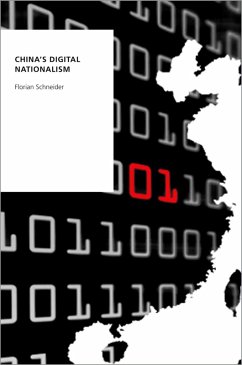Nationalism, in China as much as elsewhere, is today adopted, filtered, transformed, enhanced, and accelerated through digital networks. And as we have increasingly seen, nationalism in digital spheres interacts in complicated ways with nationalism "on the ground". If we are to understand the social and political complexities of the twenty-first century, we need to ask: what happens to nationalism when it goes digital? In China's Digital Nationalism, Florian Schneider explores the issue by looking at digital China first hand, exploring what search engines, online encyclopedias, websites, hyperlink networks, and social media can tell us about the way that different actors construct and manage a crucial topic in contemporary Chinese politics: the protracted historical relationship with neighbouring Japan. Using two cases, the infamous Nanjing Massacre of 1937 and the ongoing disputes over islands in the East China Sea, Schneider shows how various stakeholders in China construct networks and deploy power to shape nationalism for their own ends. These dynamics provide crucial lessons on how nation states adapt to the shifting terrain of the digital age and highlight how digital nationalism is today an emergent property of complex communication networks.
Dieser Download kann aus rechtlichen Gründen nur mit Rechnungsadresse in A, B, BG, CY, CZ, D, DK, EW, E, FIN, F, GR, HR, H, IRL, I, LT, L, LR, M, NL, PL, P, R, S, SLO, SK ausgeliefert werden.









